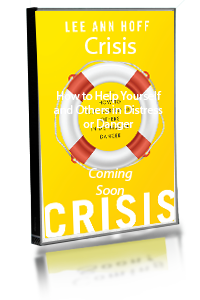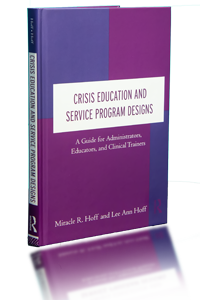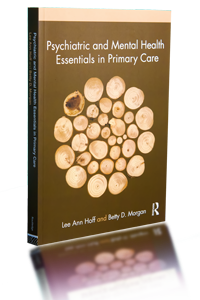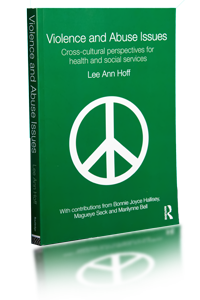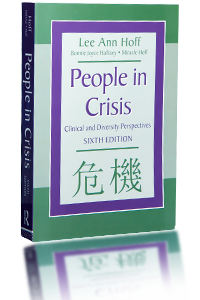
Activities
Symposium
Consortium
Research

BOOK SERIES PROPOSAL
Title – CRISIS & VIOLENCE: Human Rights, Holistic, & Public Health Perspectives
Series Editor: Lee Ann Hoff, PhD
Excerpts from the Series PROPOSAL (under review by a university press)
VISION and SCOPE
My vision for this Series emerged from the past two years’ production of manuscripts for the 6th Edition of People in Crisis: Clinical and Diversity Perspectives, 2009 (Routlege, New York & London), and Violence and Abuse Issues: Cross-cultural Perspectives for Health and Social Services, 2009 (Routledge, London & New York). The page length and related constraints of textbooks like these include recognition of this fact: Hot topics such as school or workplace violence, the crises of immigrant workers, or incorporating “crisis and triage” and life-threatening risk assessment into routine health histories for diverse persons at risk, can only be touched on in a basic text. They are introduced but cannot be addressed in depth—depending on student level and interest, of course.
Also, for some undergraduates, crisis and violence courses typically are elective, not required, a fact attesting to the second-class status of the topic despite global epidemics of same. Therefore, books such as either of the above may be the only ones the average undergraduate will be required to read. But on any one of the topics that either undergraduate or graduate students may wish to pursue for further research and study inspired by these texts, this Series would offer resources according to student interest, clinical specialization and career goals, and the continued learning needs of practicing professionals on cutting-edge topics.
[more] Interested prospective authors and contributors, contact info@crisisprograms.org
Book Series THEORETICAL FRAMEWORK – RATIONALE
Why such a series? Why at this time? And how is this proposed series different from the many volumes on crisis and violence already on the market? The following brief descriptors capture the interrelated theoretical perspectives of the Series: Human Rights, Holism, & Public Health.
Human Rights: Enshrined in international documents (the UN/WHO) and the Ministries of Health across cultures and nations is the fundamental right of all people to safety, protection against violence, and health care. By extension, and considering the whole person—not just a broken leg or other physical injury--this means psychological health, despite the secondary status of mental health services even in wealthy countries like the USA.
Holism: In the primary, secondary, and tertiary levels of preventive healthcare services, two professions—nursing and social work—claim “holism” as a key concept in their teaching and the delivery of health and mental health services. They formally recognize that social and material environments are major factors affecting the health of individuals and care administered across a spectrum of delivery systems. Yet, many practitioners in both these professions (as well as other psychotherapeutic counselors) have embraced (usually, with no questions asked--as noted in their practice and professional publications) the “zeitgeist” of interpreting and responding to individuals in crisis in a psychopathology framework. This is manifested in the quick and pervasive reliance on psychotropic drugs designed for alleviating “psychic” dysfunction, with minimal attention to the “whole” person’s emotional distress as related to family, work, culture, national economic crisis, etc. Put succinctly: An individual in crisis is more than his or her “psyche,” and inattention to this fact has a significant bearing on results of treating diagnosed “psychopathology”………….
Public Health: By definition, public health’s focus is on population groups—the public—whereas, individuals are the first line focus of clinical practitioners across disciplines. Obviously, public health professionals have individuals in mind while enacting policies affecting all, while clinical practitioners may have a public health perspective as general background in their practice. But equally obvious is that everyone cannot effectively work in both arenas at the same time; put another way, everyone cannot do everything—a holistic perspective is paramount. This series offers a bridge between these two essential aspects of preventing crisis and violence (the public health perspective) while addressing the individual clinical (medical and psychosocial) sequelae of personal and family crisis with sensitivity to the diverse origins of those crises—whether personal, domestic, socio-cultural, political, or the consequences of war or crimes such as torture and human trafficking, etc…………….
PROSPECTIVE TITLES in the SERIES
Violent and Abusive Women and Girls: Understanding and Helping
Race, Class, and Gender: Danger and Opportunity Then and Now
Depathologizing Crisis, Crime, Everyday Life, and Mental Health Services
Stress, Crisis, and Violence Prevention among College Students
Individual, Family, and Work Crises of U.S Immigrants.
Sexual Orientation and Gender Identity Issues: Resilience in Cross-cultural Perspective
Violence Prevention and Athletic Team Performance: Diversity Profiles
Death, Dying, and Bereavement Counseling: Faith Perspectives.
POTENTIAL MARKET
The intended audience for this Series includes students and practitioners across the major mental health and health disciplines as well as social science courses, especially applied sociology and anthropology. Practitioners in many NGOs serving people in crisis would also benefit from titles in this Series.
